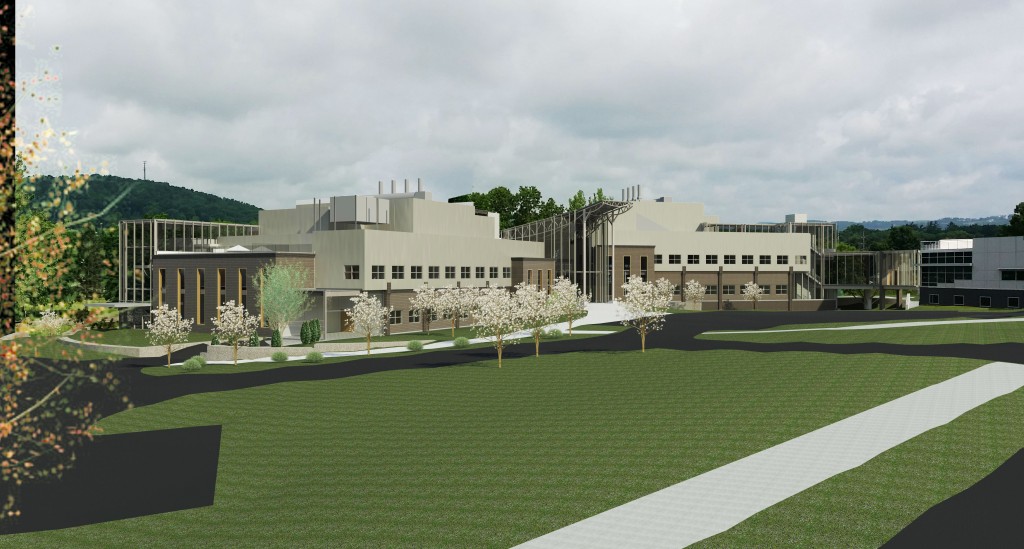
In its latest construction project, Binghamton University is creating a new building to host research for renewable energy.
The University broke ground for the Smart Energy Research and Development Facility at the Innovative Technologies Complex (ITC) on Aug. 27. The facility, a combined effort with NYSUNY 2020, will serve as a site for students and researchers to develop new smart energy technologies.
Wayne Jones, chemistry department chair and part of the faculty steering committee, said the new building will open doors for the University and green technology.
“We are very excited about the new opportunities for research this building will provide for faculty and students alike,” Jones wrote in an email. “From next generation batteries to thin films for flexible electronic devices and biosensors, the fundamental research that this building will enable will provide the basis for many new and exciting technologies.”
The building will be used mainly by the chemistry and physics departments to research new alternative energy sources.
“I think it’s a really great idea actually because we use so many non-renewable resources,” said Hannah Premo, a sophomore majoring in physics. “Having more places that research smart energy are important to making it more available for people to use all the time as well as being more affordable.”
The building, set to be completed in 2017, is projected to cost $70 million. It is part of Gov. Andrew Cuomo’s NYSUNY 2020 Challenge Grant Program, which utilizes SUNYs to spur economic growth in their areas.
According to the University’s press release, the construction project will provide the Binghamton community with 500 jobs, and employment for scientists, researchers and students.
Jones also detailed the experience the facility would offer students.
“We believe there will be more opportunities for interdisciplinary research, increased sponsored funding to support students doing research, and new state of the art equipment that students will have access to,” Jones wrote.
Once completed, the University has projected the building to generate up to $2.5 million a year to the local economy, according to the press release.
“It is providing new opportunities on the Binghamton campus for faculty hiring and this new research space,” Jones wrote.
In addition to being a research center for renewable energy, the new building is also planned to boast a LEED (Leadership in Energy and Environmental Design) certification. This includes a fuel cell to produce electricity at low cost, LED lighting and photovoltaic panels (solar panels) on the roof.


